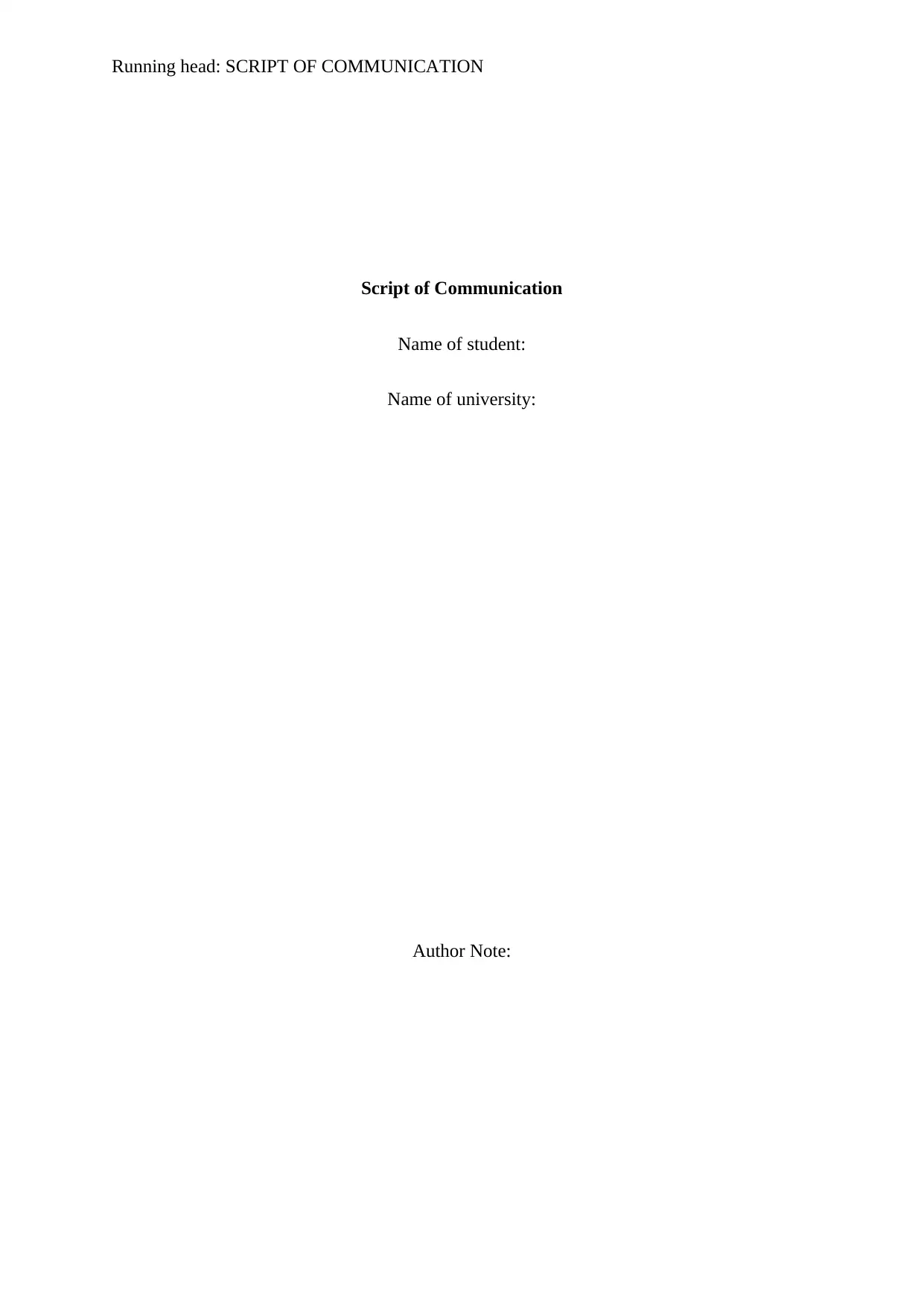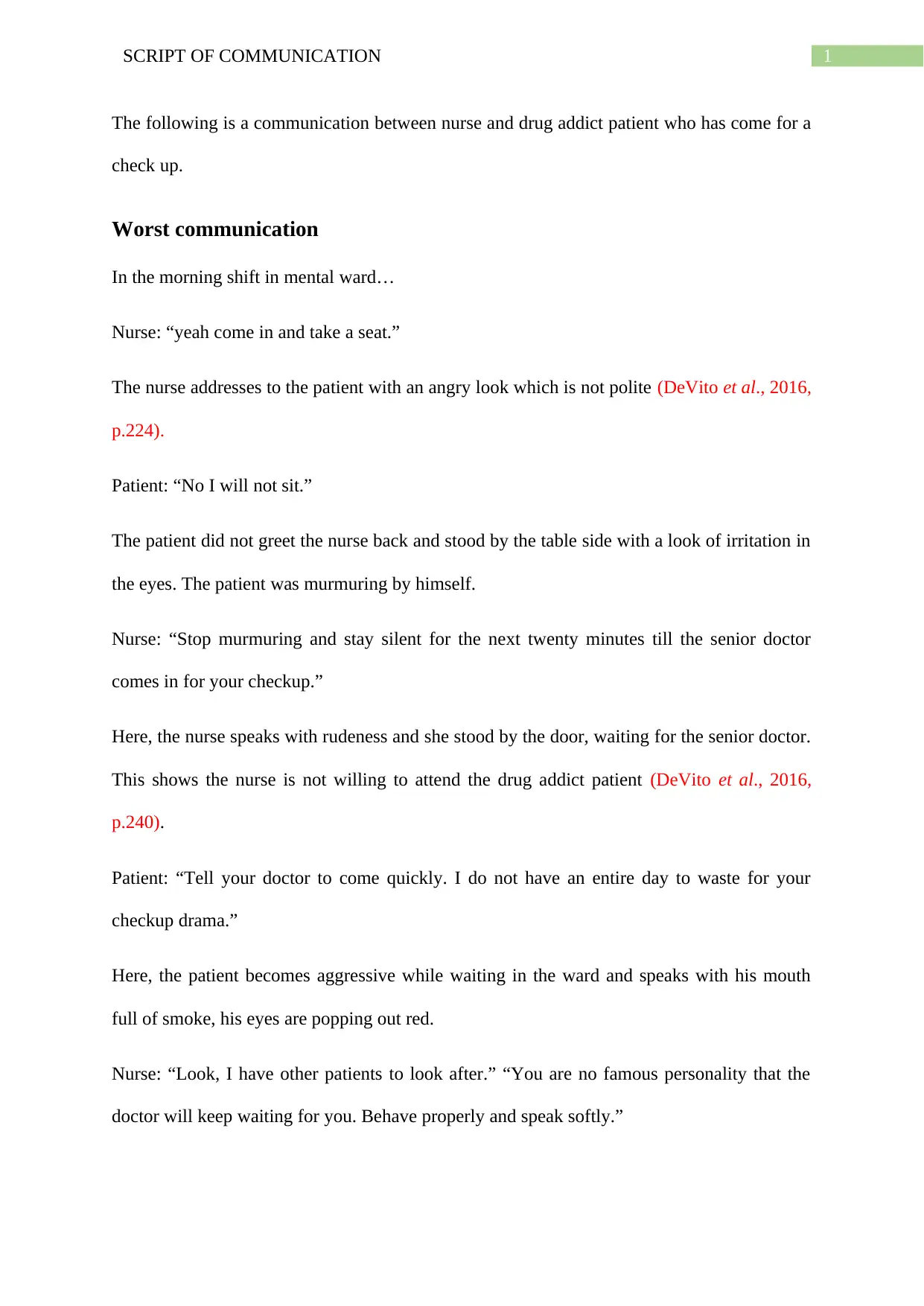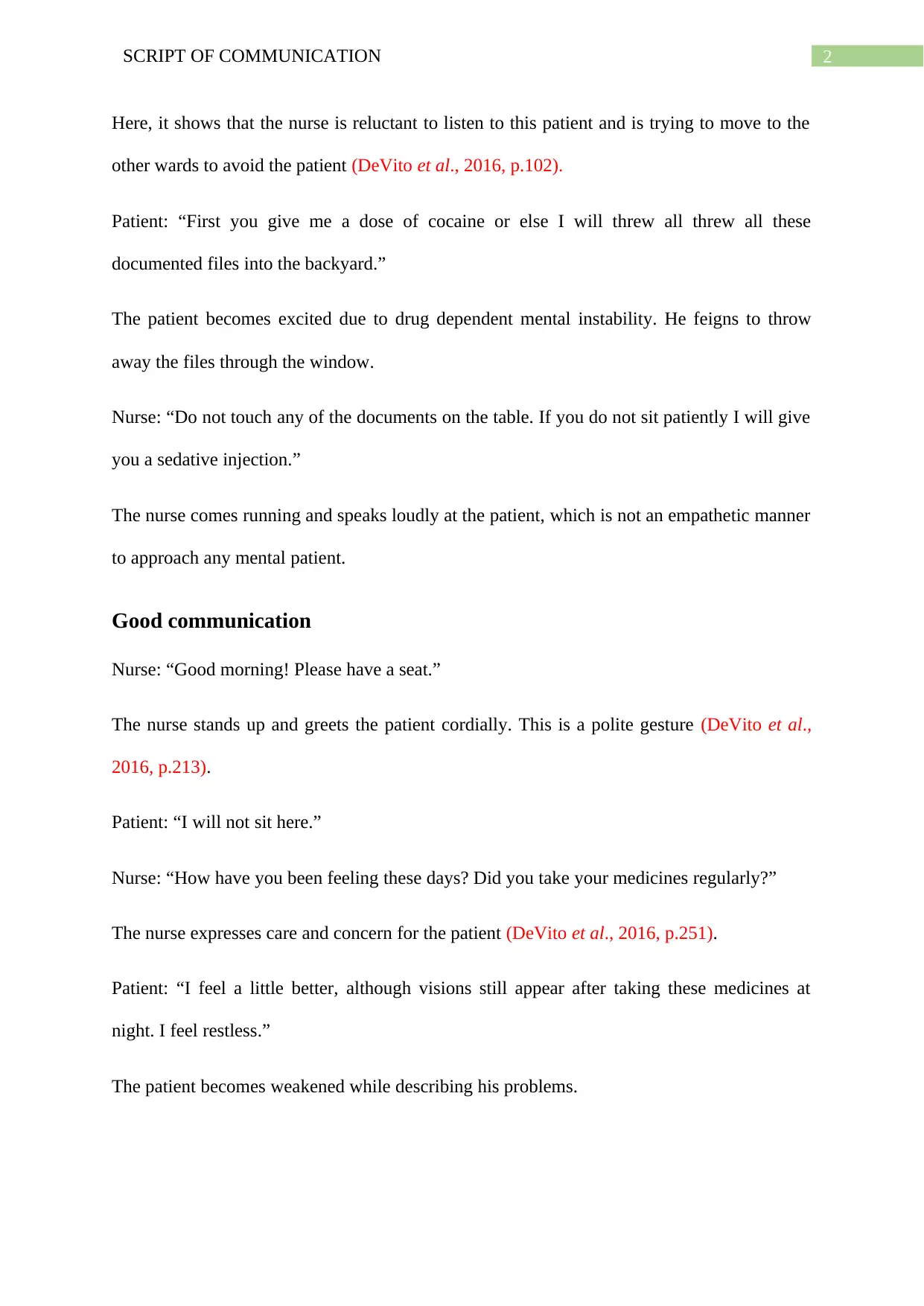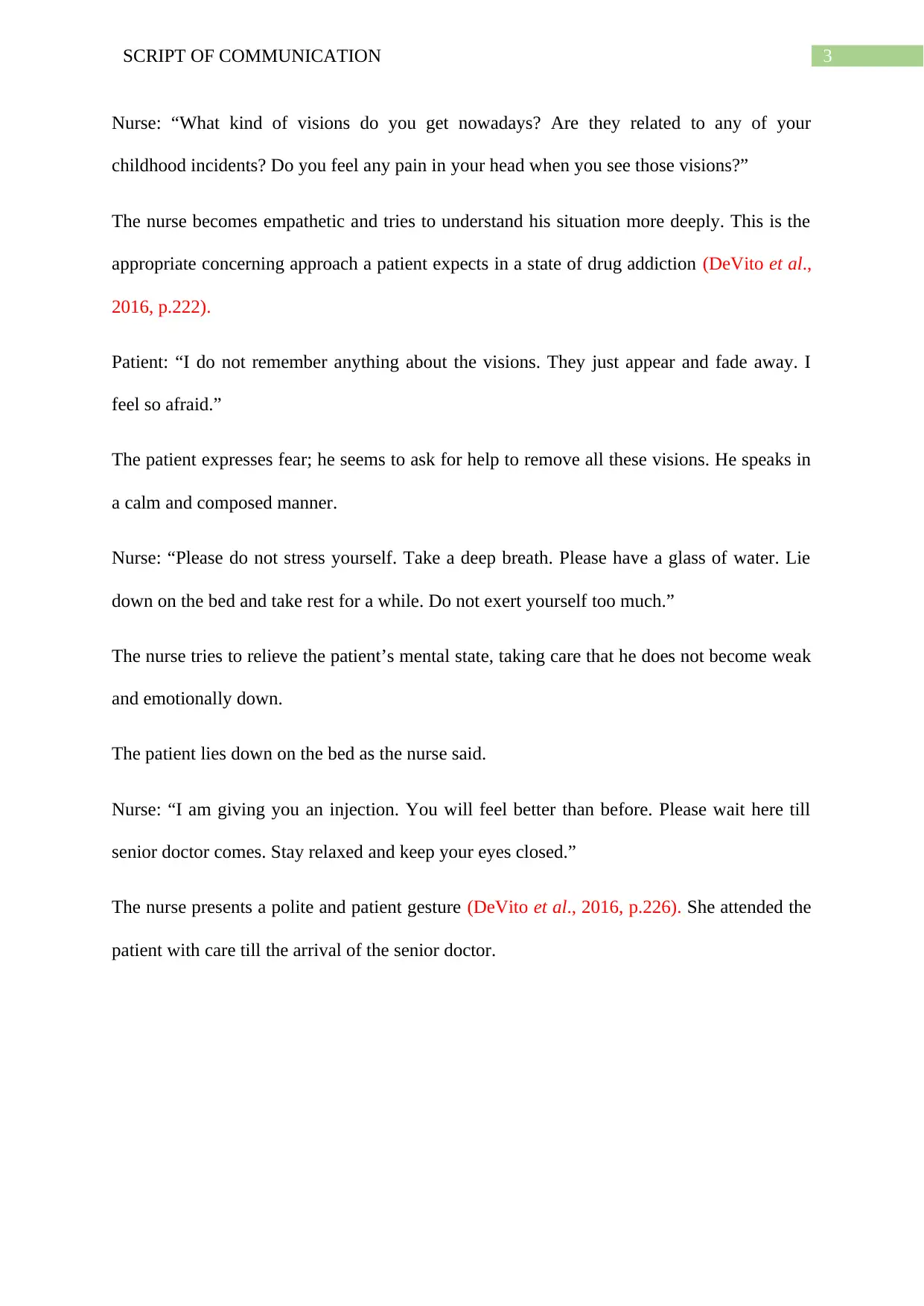Script Analysis: Improving Nurse-Patient Communication in Mental Ward
VerifiedAdded on 2023/05/28
|5
|846
|476
Creative Assignment
AI Summary
This assignment presents a script illustrating both ineffective and effective communication strategies between a nurse and a drug-addicted patient in a mental ward setting. The 'worst communication' scenario showcases a nurse's rude and dismissive behavior, leading to patient agitation. Conversely, the 'good communication' scenario demonstrates empathy, active listening, and patient-centered care, resulting in a more positive and therapeutic interaction. The script highlights the importance of a nurse's demeanor, verbal cues, and ability to address patient concerns with compassion and understanding, crucial for fostering trust and cooperation in a healthcare environment. Desklib provides a platform for students to access similar solved assignments and study resources.
1 out of 5








![[object Object]](/_next/static/media/star-bottom.7253800d.svg)